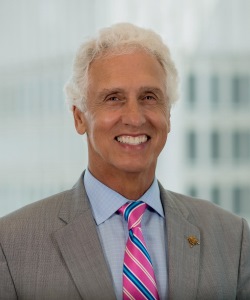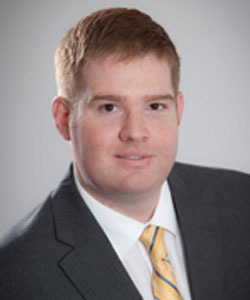Our Offices: Philadelphia, PA Moorestown, NJ

Early in August, former NFL offensive lineman Michael Oher filed a Petition to Terminate Conservatorship, for Accounting, and Other Relief with the Probate Court of Shelby County, Tennessee. The Conservatorship was terminated by the Judge in late September as a result. In his petition and a motion filed on August 21, 2023, Mr. Oher alleges that Sean and Leigh Ann Tuohy had him sign a Petition for Appointment of Conservators and that the Tuohys told him that “because he was over the age of eighteen, that the legal action to adopt Michael would have to be called a ‘conservatorship’ but it was, for all intents of purposes, an adoption.” However, the fact that Mr. Oher was able to sign away his right to the extent he did should be troubling for estate planning professionals and their clients and should provide the impetus to review what options are available to assist individuals who may need assistance in their day to day lives.
Conservatorship is Tennessee’s title for a guardianship in Pennsylvania and New Jersey. States direct courts to take a least restrictive course of action when dealing with conservatorships/guardianships. The Tennessee statute states: “Conservatorship is a proceeding in which a court removes the decision-making powers and duties, in whole or in part, in a least restrictive manner, from a person with a disability who lacks capacity to make decisions in one or more important areas…” In Pennsylvania, the court must make “specific findings of fact” before determining that an individual needs a guardian as to the capacity. These include the individual’s capacity to make and communicate decisions and to the extent of that capacity, and the need for guardianship services when considering other support and documents. Like the Tennessee statute directs the court to use the least restrictive manner, the Pennsylvania statute directs the court to prefer a limited guardianship.
It does not appear that this requirement was followed here. The Tennessee Probate Court of Shelby County issued the Order Appointing Conservators of the Person on December 7, 2004 appointing the Tuohys as the Conservators of Michael. Prior to its decision, the Court heard from the Tuohys, Micheal’s mother Denise Oher, and Mr. Oher himself. The Court made several findings in its Order including “that it is Oher’s desire that the Petitioners be recognized as his conservators until terminated by an Order of this Court,” effectively creating a permanent conservatorship for Oher. The permanent Order stripped Mr. Oher of his rights to make decisions for himself. Mr. Oher could no longer enter into contracts, bind himself or make medical decisions for himself. The Court made these rulings despite finding that “…Oher has no known physical or psychological disabilities.”
A power of attorney (POA) or supported (or assisted) decision-making agreement (SDM) would have been a much less restrictive option. A POA allows the agent to act on behalf of the principal who executes the document. The principal can choose what powers their Agent will have. When acting on behalf of the principal, the agent must act solely in the best interests of the principal and in accordance with their known desires and objectives. These can be incredibly useful documents when the Agent is trusted and acts in the principal’s best interest and the Principal allows the Agent to act. They also keep power with the principal who can continue to act on their own behalf or revoke the document so long as they remain competent. However, the Agent has the authority to make the decisions.
SDMs are a fairly new alternative to guardianships and POAs, and not every state has a statute covering SDMs. We all use the process of supported decision-making in making our own decisions when we ask our friends, relatives, colleagues, and other sources to provide their thoughts. For much of human history, we have discounted, questioned, and in many cases flat out denied that individuals with disabilities or mental diseases like dementia can govern themselves. More modern research has shown individuals who retain self-determination are more likely to live healthier, fuller lives, and remain more independent.
A SDM keeps the ultimate decision-making authority in the principal or decider. Like in a POA, the principal names individuals and the areas of the principal’s life in which they want assistance. In the SDM, these individuals are usually titled supporters. They may be asked to provide guidance on any area of the principal’s life like nutrition, medical care, relationships, finances, where to live, travel, and anything else. SDMs should go further. They need to ensure that the supporters have access to the principal’s information. That means including language in the SDM to ensure that supporters have access to the principal’s private information like that protected by HIPAA and other similar laws.
Although Mr. Oher’s situation was resolved quickly and fairly, his story shows how all too easily the rights of individuals can be stripped or even given away. Attorneys and judges need to ask “what else have we tried” before getting to the guardian stage because many times there is an alternative that will allow the individual a better quality of life. If you or your loved one need assistance with managing your affairs, call the estate planning attorneys at Leonard Sciolla.












